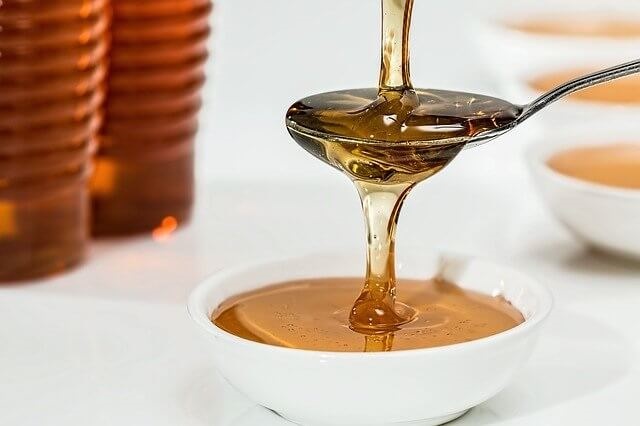The cold season has set in for some time now, and more and more people get tormented by sore throat- an issue which gets worse, if it is not treated in time. In this post I am going to be dealing with several kinds of sore throat, the main symptoms, causes and the best natural remedies for either preventing or treating sore throat.
[adinserter block="1"]Sore throat causes
Sore throat is a typical winter ailment and it is also related to season changing, when the immune system is weaker and the organism is exposed to viruses, bacteria and allergies. Among the main causes of this ailment we can find:

Viruses
- Viruses typical of cold, such as Rhinovirus, Coronavirus, Parainfluenza virus, human respiratory syncytial virus (HRSV), Adenovirus, Enterovirus e Metapneumovirus;
- Flu virus;
- Epstein-Barr virus, provoking mononucleosis;
- Chicken pox virus (belonging to the Herpes virus family);
- Measles virus, etc etc.
Bacterial infection
There exist several bacteria which may provoke inflammation and sore throat, among these we find:
- streptococci – gram positive bacteria, which are normally present in our organism mucous membranes, though sometimes they may become pathogenic and attack the organism;
- stafilococci – gram positive bacteria, that are normally present on the skin and mucous membranes, and sometimes they may get pathogenic and provoke infections.
- Haemophilus influenzae – a gram negative bacterium, particularly harmful to children.
- Bordetella Pertussis – a gram negative bacterium, which causes pertussis;
- Neisseria Gonorrhoeae – a bacterium responsible for gonorrhoea, a sexually transmitted disease;
- Mycoplasma pneumoniae – a bacterium which is usually present in the genital-urinary tract of some men and women (very sexually active people) and which may become pathogenic, thus infecting even throat mucous membranes because of unprotected oral sex, like with Neisseria Gonorrhoeae or other sexually transmitted infections
Gastroesophageal reflux
In this case, gastric secretions go up to the aesophagus and may inflame the mucous membranes, thus triggering troublesome sore throat.
Allergic reactions
It is not just seasonal allergies, caused by exposure to pollens, but also allergies caused by touching pets or mold.
Exposure to toxic chemical substances
Also a prolonged exposure to toxic chemical substances, either at work or at home, may irritate mucous membranes and provoke sore throat. Cigarette smoking and air pollutants may cause sore throat as well.
Heating
In heated rooms air may get to dried and, if you breathe it for hours, it may inflame your throat.
Overstraining throat muscles
As with any other muscle in our body, throat muscles may get inflammed when overstraining, like if you speak for long or cry out. Some professionals, like teachers for example, often suffer from this type of sore throat.
Cancers
Sometimes sore throat may become a symptom of throat, larynx or tongue cancer.
Chronic sinusitis
Those who suffer from chronic sinusitis (chronic sinusitis occurs when the spaces inside your nose and head are swollen and inflamed for three months or longer, despite treatment) are prone to throat mucuos membranes.
Weak immune system
Immuno-compromised individuals who already suffer from a chronic pathology (like AIDS and diabetis) or that undergo chemotherapy or take immuno-depressive drugs, become more vulnerable to pathogenic agents.

[adinserter block="1"]The 4 types of sore throat
According to the organs affected, there exist 4 types of sore throat:
1 – Pharyngitis
The pharynx is the part of the throat behind the mouth and nasal cavity, and above the esophagus and larynx – the tubes going down to the stomach and the lungs. If this tract gets inflammed, you may get sore throat. This kind of sore throat is a frequent symptom of cold. Since the pharynx is the first tract of the upper airways, it is prone to pathogenes.
Other symptoms that may go with pharyngitis are: pinching feeling, fever, swollen tonsils or neck lymph nodes, whitish plaques on the mucous membranes, overall discomfort etc.
2 – Laryngitis
The larynx connects the pharynx to the trachea. Here we can find vocal cords, and when the larynx gets inflammed voice gets lower.
Other symptoms that may go with larynx: hoarseness, dry cough
3 – Tracheitis
This is the last tract of the throat, which goes up to the bronchi. The trachea may get inflammed when it gets infected by germs going from the pharynx to the larynx.
Other symptoms that may go with tracheitis: dry cough then turning into productive cough; catarrh, heartburn, overall discomfort, shortness of breath. If it is not treated properly, it may affect the bronchi as well.
4 – Tonsillitis
The tonsils are a set of lymphoid organs facing into the aerodigestive tract;they may get inflammed if attacked by viruses or bacteria.
Other symptoms that may go with tonsillitis are difficulty swallowing, fever, cough, watery, headache, whitish or yellowish plaques on the tonsils.

The best natural remedies for treating and preventing sore throat
Lots of people have recourse to antibiotics right away, when it comes to treating sore throat, though this may have negative consequences, as antibiotics (especially if not used properly) may trigger other infections, liver issues, inmbalance of the vagina and bowel microbe ecosystem, and may make the immune system ever weaker.
In most cases, sore throat may be effectively treated with remedies that nature provides. Here are a few of them:
1 – Gargle with lukewarm water, salt and carbonate, or as an alternative, with water and lemon juice.
Melt a little spoonful of carbonate and water salt in a glass of lukewarm. As an alternative, you may add the juice of half a lemon. Do gargle at least three times a day.
2 – Clove infuse
Boil a little spoonful of clove in a cup of water for about 15 minutes.
Clove has an anti-bacterial and numbing action. If the taste of the infuse is too strong, you may make it sweeter by adding some honey, or you can use it for gargling instead of drinking.
3 – Honey
Honey is an actual gift from the nature. Its use is essential not only to boost the immune system, but also as a natural antibiotic.
You can have it by itself (½-1 spoonful three times a day) or mixed with cinnamon, tumeric or apple cider vinegar. These ingredients act on the inflammation and soothe sorethroat. Honey is also extremely helpful,in order to prevent sore throat, as it boosts the immune system.
4 – Propolis
Propolis has a balsamic and anti-biotic action. If used with honey and lemon, it becomes extremely effective to cure sore throat and winter ailments in general. Melt propolis extract in a cup of water, add honey and lemon juice and there you have it!!! Use it as a preventive measure, above all if you already suffer from a chronic pathology.
5 – Infuses
You can make infuses with single herbs or with herb mixtures, in order to get a synergical effect, which is way stronger. Here are a few medicinal herbs that best fit if you have a sore throat:
- Mallow – has hydrating and anti-inflammatory properties; it is extremely packed with mucilage, lines and protects mucous membranes.
- Sisymbrium officinale, known as hedge mustard, (formerly Erysimum officinale) is a plant in the family Brassicaceae. The Greeks believed it was an antidote to all poisons. In folk medicine, it was used to soothe sore throats – indeed one name for it is singer’s plant. This plant “grows by our roadsides and on waste ground, where it is a common weed, with a peculiar aptitude for collecting and retaining dust…it is named by the French the ‘Singer’s Plant,’ it having been considered up to the time of Louis XIV an infallible remedy for loss of voice.
- Altea – has emollient, lenitive and protective properties. What is more, it is an effective decongestant and anti-septic.
- Hyssop – has balsamic and expectorant.
- Karkadè – extremely rich in vitamin C and mucilage. It has anti-septic, antioxidant, vitaminzing, lenitive and anti-flu properties.
- Sage – it has anti-septic and balsamic properties, helpful if you have catarrh and cough.
[adinserter block="2"]6 – Essential oils
Essential oils contain all of the beneficial properties I have already mentioned in the first five points. They enshrine wellbeing within them, and it may prove helpful not only to cure an ailment such as sore throat, but also to prevent it and enhance the immune system.
Among the essential oils recommended to soothe sore throat, we can find:
- Lemon essential oil – anti-bacterial and anti-oxidant action;
- Clove essential oil – anti-bacterial and numbing action;
- Tea Tree essential oil – anti-microbic action;
- Eucalyptus essential oil – anti-bacterial and balsamic action;
- Thyme essential oil – anti-bacterial action;
- Lavander essential oil – anti-inflammatory, anti-microbic and anti-oxidant action
- Ginger essential oil – anti-inflammatory action;
- Pepper mint essential – refreshing and anti-bacterial action;
- Frankincense essential oil – lenitive, anti-septic, anti-inflammatory action, helpful to boost the immune system.
Essential oils may be used in different ways:
- Do gargle (add a few drops in half a glass filled with lukewarm water);
- Add a few drops to herbal teas or infuses;
- Do fumigation;
- Inhale from the hands or from an handkerchief;
- Diffuse in the air with a diffuser;
- Take relaxing baths etc.
It is always advisable to use pure essential oils, certified and with therapeutic grade. As far as I am concerned I use exclusively doTERRA essential oils, that undergo five different analysis methods which guarantee their purity and power.
Click HERE if you want to know more or leave a comment below if you are interested in purchasing them at a convenient price.
[adinserter block="1"]Some more advice:

In order to prevent sore throat and recover as soon as possible, it may be helpful to follow such advice as:
- avoid smoke, alcohol and coffee, that may irritate throat mucous membranes;
- don’t breathe with your open mouth;
- moisten rooms, especially during the night;
- drink many liquids, especially water, but also herbal teas and infusions;
- sleep long enough (at least 7-8 hours) – proper rest is essential for the organism to recover as soon as possible;
- often wash your hands with water and soap, above all after using public toilets or going out;
- don’t share cutlery, glasses, mugs e foods with other people;
- don’t spend too much time out-doors when smog concentration in the air high, and keep your car windows open when you’re jammed in the traffic;
- avoid direct contact with people suffering from infective diseases;
- seek medicaal advice if the symptoms are still present or get worse or if sore throat goes with high fever.
Conclusion
There exist several causes that may trigger sore throat, though in most cases this issue gets soothed in 5-10 days.
Sore throat may be effectively treated with natural remedies, that not only have an effect on the symptoms that may go with this issue, but also on the immune system. Their side effects are definitively fewer than traditional medicines.
If you liked this article, please share it with your friends. If you have questions to answer me, I will be more than happy to help you out. Thank you, Alex
Resorces:
- “The Complete Book of Essential Oils and Aromatherapy “, Valerie Ann Wordwood
- “Ma bible des huiles essentielles”, Danièle Festy
- Antimicrobial efficacy of five essential oils against oral pathogens: An in vitro study
- Antibacterial and antioxidant activities of Mentha piperita L. – Study by Authors: Rajinder Singh, Muftah A.M.Shushni, AsmaBelkheir
- Review: “Lavender Essential Oil” by Heather MA Cavanagh, Jenny M Wilkinson Antibacterial activity of the essential oils from the leaves of Eucalyptus globulus against Escherichiacoli and Staphylococcus aureus

